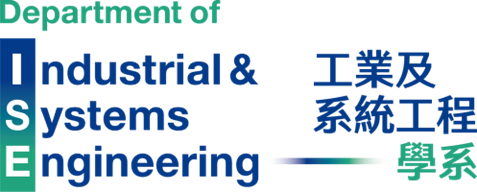Eye-tracking method in business empirical research
Research Seminar Series

-
Date
29 Jul 2024
-
Organiser
Department of Industrial and Systems Engineering, PolyU
-
Time
15:00 - 16:00
-
Venue
P307
Speaker
Prof. Mike Tse
Summary
In the past decade, advancements in eye-tracking technology have significantly increased its popularity and affordability. Presently, eye-tracking has become a staple tool across various industries, including marketing, advertising, psychology, and education. Additionally, it has found applications in operational activities such as information searching, decision-making, learning, and training systems.
Utilising eye-tracking, researchers can record individuals' gaze coordinates on stimuli like social media posts, reports, or images, capturing both the temporal dimension of their gaze and pupil dilation. Most importantly, this technology allows for the inclusion of cognitive process data, expanding analysis beyond mere decision outcomes to encompass insights into decision-making processes.
In this presentation, we will explore the design of eye-tracking research within business and management contexts and how empirical scenario-based experiments can be integrated with eye-tracking data. Furthermore, I will discuss my ongoing research on corporate social irresponsibility, which investigates how cognitive data (i.e. eye gaze) on various elements in social media posts influence customer reactions to incidents related to operations and manufacturing. By leveraging eye-tracking technology, this study sheds light on the cognitive processes underlying consumer decision-making behaviours.
Keynote Speaker

Prof. Mike Tse
Professor
Professor in Operations Management,
Cardiff University, UK
Prof. Mike Tse’s research interests have been in the fields of Operations Management and Data Analytics, in particular the area of risk and resilience in both supply chain and big data environments. I have gained wide recognition in this field, both nationally and internationally. Much of my research focuses on the investigation of risk dimensions and risk remedy practices that organisations adopt in a changing and complex environment. Faced with uncertainties and environmental dynamism, organisations are having to find alternative ways to react and survive in company and/or supply chain crises. My interest is in how companies and their decision-makers respond to a devastating crisis (such as a product recall incident), an event that demands a quick and effective risk management strategy and changes in the nature of company operations. In order to ensure organisational resilience, such changes will often involve new activities, skill-sets and technologies. My other chief research interest is the application of Social Media Analytics in company crises. This is a spin-off from two of my previous projects, funded by the British Academy and Chartered Institute of Logistics and Transport. Here, I use a cross-disciplinary approach to study practical research problems. For example, I have worked with colleagues in the fields of Computer Science and Sociology to develop an analytical approach to integrating secondary data, empirical data and social media data to study the stakeholder perceptions towards supply chain scandals, such as the Horsemeat Scandal and Volkswagen Emissions Scandal. More recently I have explored how to conduct risk and resilience analysis by integrating different types of data sources, such as financial, panel data and social media data. This work, supported by grants funded by CESFS and N8 AgriFood, aims to trace the UK food chain(s) by using secondary data, and explores how to integrate various secondary and open data sources to understand the adoption and diffusion of resilient practices in UK food supply chains.
You may also like














